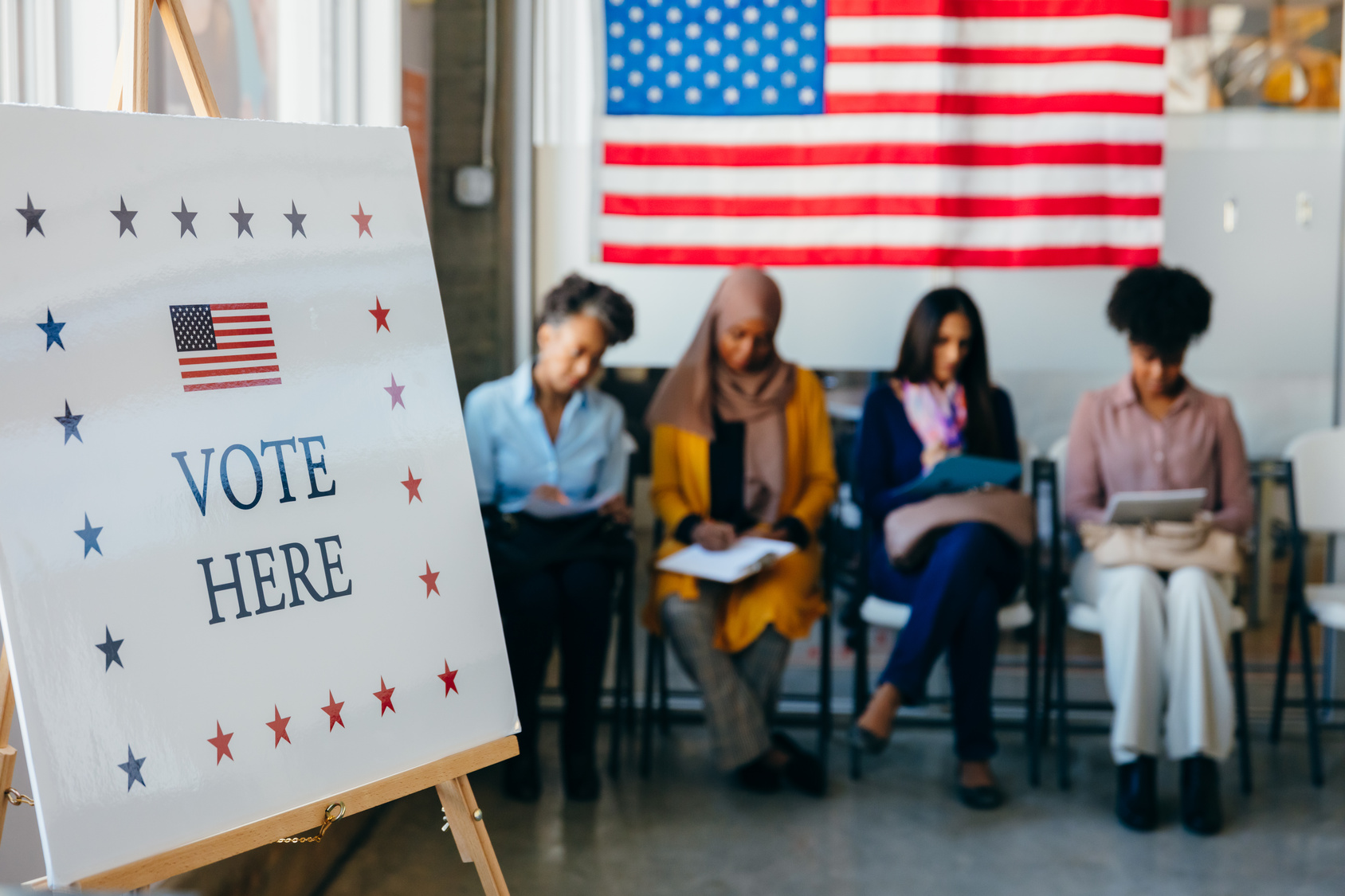Blog April 2, 2021
For Black Voters, Friends and Family May be a Critical Link to the Democratic Party

Black Americans have been reliable Democratic voters for over a generation. In 2020, black Americans rescued Joe Biden’s foundering primary campaign by propelling him to victory in the must-win state of South Carolina, and supported him over Donald Trump in the general election by an 82-point margin.
Although the politics of black Americans are not monolithic, a new book suggests that their enduring connection to Democratic Party is at least partly a result of social pressure they face from black friends and family. In Steadfast Democrats, political scientists Ismail K. White and Chryl N. Laird argue that political decision-making among black voters is constrained by their immediate social environment and the extent to which they understand that their family and peers will hold them accountable for their political choices. Consistent with this work, a new analysis of the 2020 American National Social Network Survey finds that black Americans who have more close connections to other black people express greater attachment to the Democratic Party and demonstrate higher levels of political engagement.
Overall, more than six in 10 black Americans identify as Democrats, including 30 percent who report having a strong Democratic identity. However, the strength of affiliation varies considerably. Less than one in five (18 percent) black Americans who report having no immediate black social connections identify strongly with the Democratic Party. Among those with one to three black social contacts, 29 percent report a strong Democratic affiliation, while 44 percent of those with four or more black contacts are strongly Democratic.
Black Americans with a larger number of black social ties also report more favorable views of the Democratic Party and, alternatively, more negative views of the Republican Party. Roughly two-thirds (65 percent) of black Americans with no close social ties who are black view the Democratic Party favorably, compared to 88 percent of black Americans with four or more black social ties. In fact, black Americans with large networks of black contacts are twice as likely as those with none to have a “very favorable” view of the Democratic Party (42 percent vs. 20 percent). Conversely, black Americans with no close black connections express a much more favorable view of the GOP than those who report at least four black connections (25 percent vs. 6 percent, respectively).
Vote choice among black Americans strongly corresponds to the prevalence of black social connections. In the 2016 election, only 56 percent of black Americans who have no black social contacts reported voting for Hillary Clinton. In contrast, roughly eight in 10 black Americans with one to three black contacts (79 percent) and those with at least four black contacts (83 percent) reported supporting Clinton in the election. Notably, black Americans who lack a close personal connection to someone who is black were far more likely to have sat out the election (28 percent) than to have supported Trump (8 percent).
Finally, black Americans with many black social ties are more politically active than those with fewer black social ties. Compared to black people with no close black connections, those with many are much more likely to donate to a political candidate or cause (28 percent vs. 16 percent), publicly express support for a political campaign on social media (40 percent vs. 20 percent), contact an elected official (27 percent vs. 14 percent), or wear clothing featuring a political slogan (24 percent vs. 12 percent).
For black Americans, having more close connections to other black people also means receiving more frequent appeals to participate in politics. Black Americans with large black social networks report being encouraged to vote at a far greater frequency than those with fewer ties. Less than half (44 percent) of black Americans with no close connections to other black people report someone they knew encouraged them to vote in the last 6 months. Among those with large networks of black friends and family, 65 percent reported being encouraged to vote.
With high turnout in the 2020 election, black voters appear poised to remain a critical constituency in the Democratic Party. But their strong support for Democratic candidates and continued political involvement is a function of their social circumstances. As Laird and White note, more than anything else it is social pressure that “cements that relationship between the black electorate and the Democratic party.”








